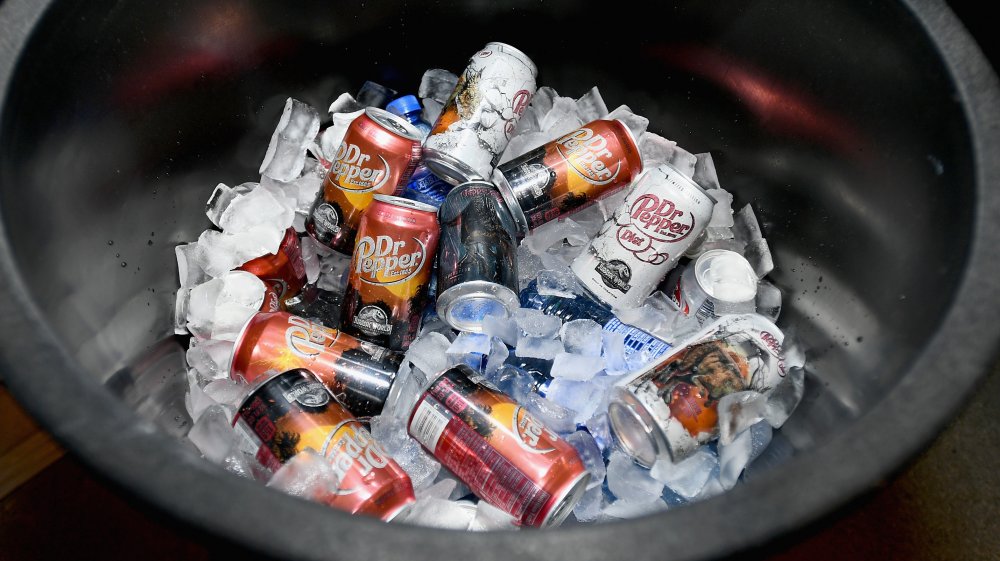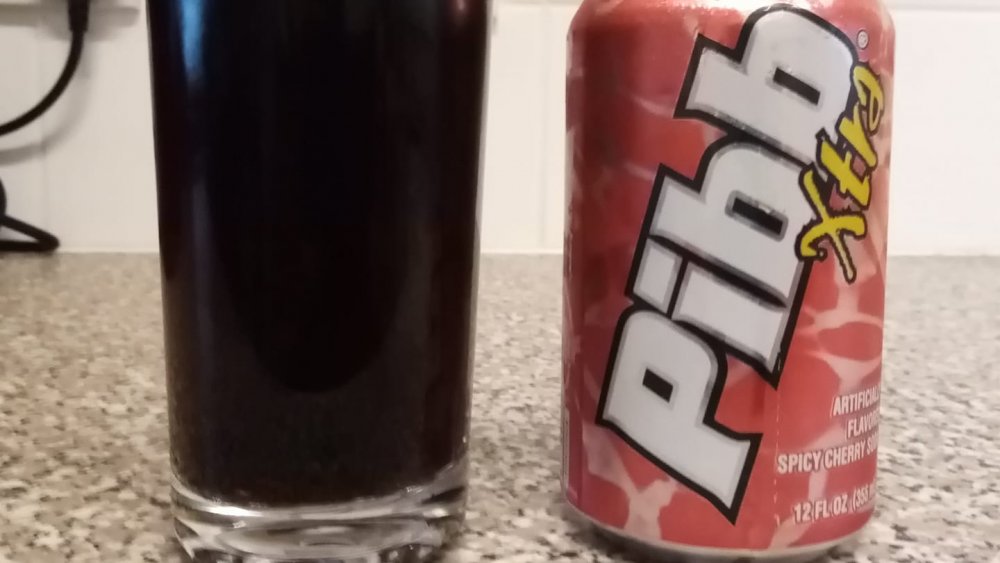The Real Difference Between Dr Pepper And Mr. Pibb
Dr Pepper and Mr. Pibb are two cola-esque soft drinks that share a similar flavor profile, but their history is somewhat different and there are a number of things that set them apart.
For starters, Dr Pepper is the older of the two beverages. It goes all the way back to the late 1800s when a pharmacist who worked at a drug store in Waco, Texas created the soda. Somewhat strangely, he named it after the father of a girl he was once in love with. Being introduced to the market in 1885 makes it the oldest soft drink in the United States, beating out both Coca-Cola and Pepsi.
The brand itself is somewhat coy about what the flavor of the soda is, divulging only that is a "unique blend of 23 flavors" but acknowledging at the very least that no prune juice is included in the formula (a once-pernicious rumor).
Mr. Pibb enters the scene
Mr. Pibb, on the other hand, was introduced by the Coca-Cola Company in 1972, which wanted to launch a new product to compete with the success of Dr Pepper in the southern region of the United States (via Pibb Thug).
The drink's original name was Peppo, but that was a little too on the nose for Dr Pepper manufacturers, and they decided to sue Coca-Cola. They changed the name instead to Mr. Pibb. When they launched the beverage, they cheekily made it available first to tasting groups in Dr Pepper's birth city of Waco.
In 2001, the company underwent another name change and became known as Pibb Xtra. To hear Coca-Cola tell it, it was called Xtra because the formula was changed as well, and more cinnamon flavor was introduced (via How Stuff Compares). They considered the taste to be bolder, hence the "Xtra." Today, the drink is marketed as "an intensely flavored, refreshing, spicy cherry alternative to regular cola" (via Pibb Xtra).
While Dr Pepper enjoys success and distribution all over the world, Mr. Pibb is predominantly available only in the United States, where it still hasn't been able to truly compete with Dr Pepper, in part due to how long its competitor has been on the market.

